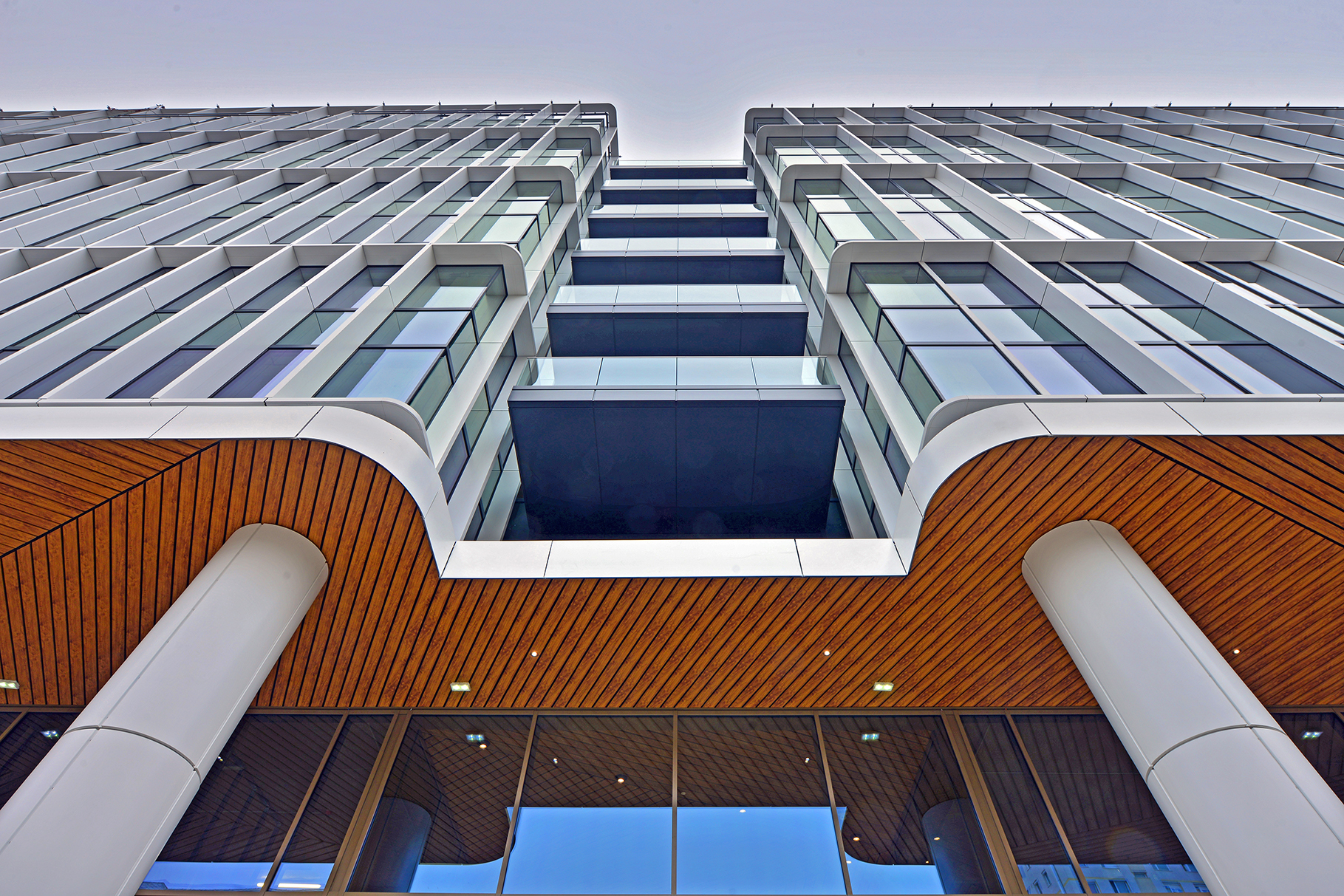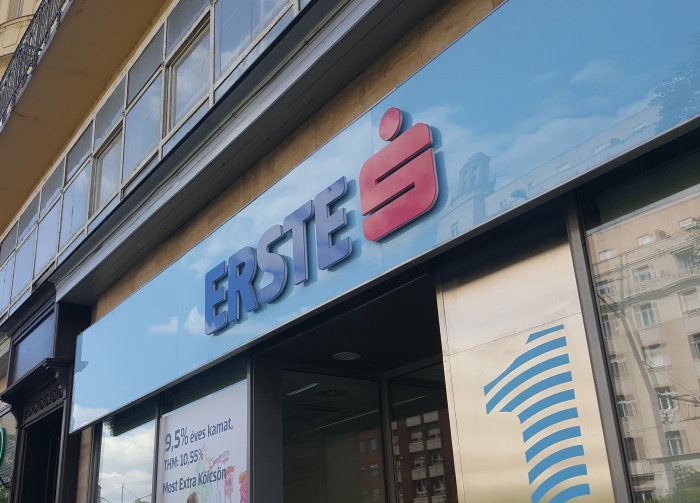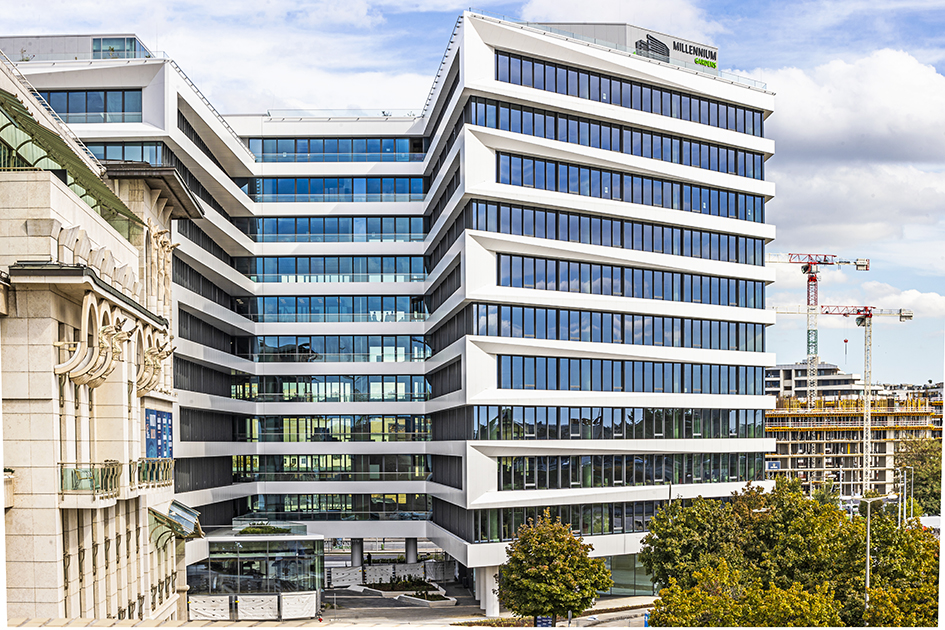BSCs an Essential Part of Budapest Office Market Development

H2Offices by Skanska on Váci út has attracted SSC attention.
Hungary, and Central Europe in general, has successfully promoted itself as advanced but cost-effective business destinations for international companies looking to establish what used to be called shared services centers. That trend helped make what are now increasingly called business services centers a core driver of the developer-led office market.
This, in turn, enabled developers to undertake speculative development projects, provided substantial preleases that allowed projects to go ahead and acted as a catalyst for the development of higher quality, more sustainable, well-located office space with Breeam, Leed and Well accreditation. Today’s economic uncertainty, however, means there is currently restrained market demand from companies seeking such space.
“CEE office markets are currently facing a problem of slowing net demand, which stems from higher rental and fit-out costs, adjustments to hybrid work and overall economic uncertainty. Another challenge is postponing new construction,” comments Blanka Vačkova, head of research for IO Partners in the Czech Republic.
There are close to 150 companies operating BSCs in Hungary, employing as many as 70,000 people in Budapest and second-tier university cities, according to the Hungarian Investment Promotion Agency. Budapest was able to attract such centers due to lower labor costs and the good language and collaborative skills of Hungarian workers.
“SSCs are a good tenant from a landlord perspective as they demand large floor plates for long lease periods,” comments Valter Kalaus, managing partner at Newmark VLK Hungary. The typical business services center requires 1,000-3,000 sqm, with flexibility needed as space is ramped up over time.
Business or shared services can be seen as the entity within an organization responsible for the execution and handling of specific operational tasks such as accounting, human resources, IT, legal, compliance, purchasing and security. Essentially, it is the spin-off of services to separate operational duties from the corporate headquarters, with such a decision typically made from a cost perspective.
Business process outsourcing involves contracting an outside vendor with the appropriate skills and resources to carry out the work, while a shared services center is a single, autonomous business unit within the company. Both are part of the Business Services Sector (BSS), a broader term for the service industry dealing with, for example, IT outsourcing and R&D.
Central Drivers
SSCs and BPOs have been widely regarded as central drivers of Budapest office demand and take-up and a principal vehicle for promoting inward investment. Further, secondary cities such as Debrecen are now attracting BSCs, with developer-led commercial office complexes developed to meet demand.
The development of the Leed “Gold” accredited 22,000 sqm Forest Offices Debrecen is a good and early example of a speculative Hungarian provincial office project, following a pattern long seen in other leading Central European countries like Poland and the Czech Republic for development away from the capital.
From a real estate perspective, the essential requirement for the business services sector has been a stock of well-located class “A” office space with a premium on good public transport links (for example, a site no more than 400 meters from a metro station). More recently, a requirement for an interior environment that enhances the health and wellbeing of staff and that enables increased productivity and staff loyalty has been added.
Companies are, in general, prepared to invest in a superior working environment and seek out active design, layout and property management that potentially increases employee productivity and helps attract and retain employees long-term in a tight labor market. Further, there is a need for flexibility and space availability at short notice if an SSC tenant wishes to expand.
The Váci út corridor business district could be considered a classic business services destination. The District XIII Municipality was keen to promote what was a post-industrial area with numerous brownfield development plots offering direct access to metro and road links, providing easy access to the city center and residential neighborhoods, from where staff can quickly commute by public transport, car or bicycle.
As more developers moved into the business district, urban infrastructure emerged, including retail, restaurants and services. Máté Galambos, leasing director at Atenor Hungary, says GE is a prime example. It has significant amounts of space at the 130,000 sqm Váci Greens offices, which Atenor developed, leased and subsequently sold on to different investors.
‘Dry’ Period Ahead
“There is still weakening demand, a decreasing number of relocation transactions, hopefully bottoming out in the fourth quarter of 2023 or the first quarter of 2024,” comments Kalaus. “Supply of new buildings is getting very slim as there has not been new construction starting in the past 12 months; only the previously started constructions are being finished. Beyond that, there will be a ‘dry’ period in terms of new building delivery,” he explains.
“Demand for classic office space has been derailed by remote and hybrid work and flex offices / co-working spaces. The share of serviced offices will rise, and this category will be extended in some secondary cities, like Debrecen, Győr and Szeged,” Kalaus believes.
“In Debrecen, a major international player has already appeared from the supply side, and the same is expected soon in Szeged and Győr,” he adds.
Due to the elevated base of the pipeline, the present volume in Budapest remains comparatively higher. Nevertheless, the fact that more than 40% of the projected 2024 pipeline is already preleased offers some reassurance. This provides confidence that the vacancy rate is not likely to escalate rapidly in Budapest, IO Partners concludes.
With an increased emphasis on sustainability issues, BSCs are undertaking increasingly complex functions beyond an administrative role, such as R&D, with the resulting requirements for more sophisticated and highly specified office accommodation.
This article was first published in the Budapest Business Journal print issue of November 17, 2023.
SUPPORT THE BUDAPEST BUSINESS JOURNAL
Producing journalism that is worthy of the name is a costly business. For 27 years, the publishers, editors and reporters of the Budapest Business Journal have striven to bring you business news that works, information that you can trust, that is factual, accurate and presented without fear or favor.
Newspaper organizations across the globe have struggled to find a business model that allows them to continue to excel, without compromising their ability to perform. Most recently, some have experimented with the idea of involving their most important stakeholders, their readers.
We would like to offer that same opportunity to our readers. We would like to invite you to help us deliver the quality business journalism you require. Hit our Support the BBJ button and you can choose the how much and how often you send us your contributions.










